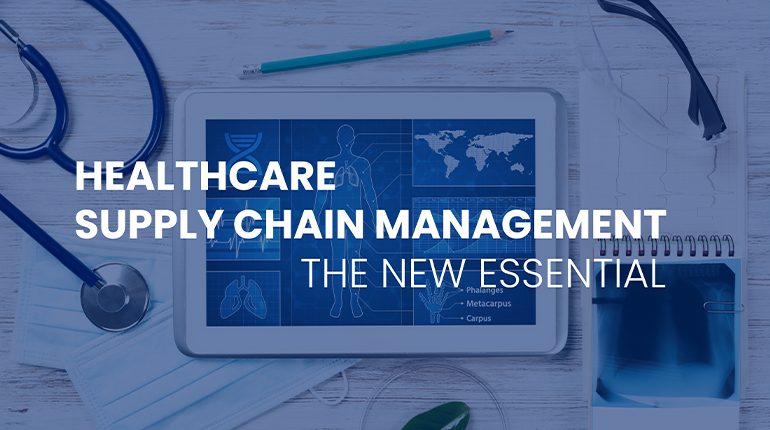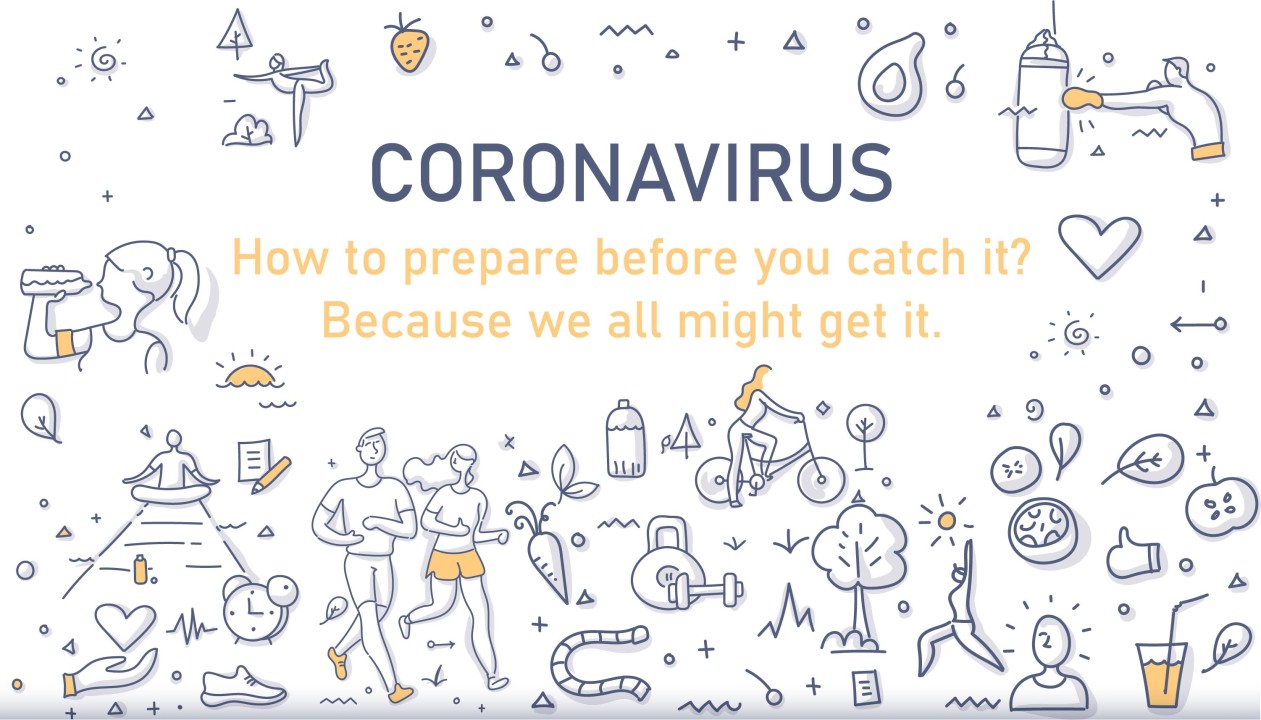 Blogs
Blogs
Blogs
More than ever the healthcare sector is facing huge challenges with the COVID-19 pandemic – the demand has never been greater. The combination of demand for supplies, the pressure to allocate essential goods (such as PPE) from doctor to patient and a decrease of the resources is challenging healthcare executives to think outside of the box and strategically focus on streamlining operations efficiently and effectively while at the same time delivering improved outcomes without compromising quality of care.
 06/01
06/01
Across the supply chain network, we will find up-and-coming technologies with solutions to simplify the complex infrastructure of supply chain management by helping healthcare professionals to identify areas of opportunity for improvement. With all the technological advances over the past decade – EHR, Telehealth, Sensors and Wearable technologies just to name a few – the healthcare operational sector has adapted to the use of technology quite well. Surprisingly though, not all organizations have embraced the use of technology and are still utilizing manual processes and outdated tools. At ACXSS, we work in tandem with organizations to leverage experience, relationships, contracts, data, and technology to provide instant operational oversight so you can achieve measurable results. ACXSS’ proprietary tool was designed by supply chain professionals in collaboration with healthcare professionals. We have a comprehensive approach to the healthcare industry and its complexities taking into consideration all aspects from people to technology. We sustain a relationship with our members that starts at research and planning and continues through implementation and post-release support and reporting. ACXSS offers intelligent and data-driven solutions to seamlessly streamline your supply chain process.
Our comprehensive suite of solutions includes: • The Marketplace: All your shopping is done from one single place, by multiple locations and users with our customized single-source multi-vendor, cloud-based ordering platform. • Complete Dashboard: The Dashboard provides an instant oversight of your organization, uncovering opportunities to improve your bottom line. • Smart Inventory: Our Smart Inventory tool allows you to enhance your supply chain process by establishing a rules-based inventory ordering system. • Customized Report: Customized reports allows for real-time spend visibility across all locations with an enterprise to line-item detail. • Accurate Data & Analytics: Intuitive spend analytics tools to drive business intelligence with real-time price auditing, contract management and compliance, savings analysis tools, vendor management and reporting, and much more.
We are living through a global pandemic! Wow! The coronavirus crisis is a global issue and makes the major headlines and casual conversations daily. We cannot escape from it or avoid talking about the devastating consequences of this pandemic that is affecting the lives of so many. I am sure you are receiving your daily dose of updates on COVID-19, mostly talking about preventive measures, the increase in the number of cases and deaths, and the disagreeable symptoms that you can experience in the event of becoming infected with the virus. While the media is doing a great job in keeping the globe informed on the statistics, and progress on research for a vaccine or drug that will stop the pandemic, most updates bring us more fear than hope. Generally, bad news always makes the headlines first, and I am sorry to do this, but here is another one: coronavirus is sticking around for a little longer.On the bright side, this article is about what you can do to strengthen your body’s immune system in case it hits you. You will not need to stock up on toilet paper, I promise.
 06/01
06/01
Briefly, I would like to go back in history, more precisely 1918 when the Spanish Flu pandemic occurred. We are talking about 2 completely different viruses, but similar social effects. It is interesting to observe what happened back then to help us understand what is potentially happening now. You know what they say - sometimes you need to step out of the frame to see the full picture. As of today, over 100 years later it is still not known exactly where the strain of the H1N1 virus that caused the Spanish Flu originated from. However, we know that it was first observed in Europe, followed by America and some areas of Asia before becoming a global issue. With its first wave of infections that occurred in the spring of 1918, the Spanish Flu seemed to cause mild flu-like symptoms and the infected person could recover from the virus in several days. No big deal, right? Until a second infectious wave stroke came in the fall of that same year – infecting over 500 million people (a third of the world’s population back them) and killing an estimated 50 million people. It was not until 2008, nearly 90 years later, that researchers found out what caused the Spanish Flu to be so deadly. So, how did it stop? Well, it did not. Millions of citizens either died or built an immunity to the virus, which is known as “herd immunity” that is achieved when a large percentage of the population develops immunity to an infection, either through previous exposure or vaccination. This is where I am trying to get. Whether we will have a vaccine available to combat the COVID-19 causing virus (SARS-CoV-2) soon enough or herd immunity is the next step to stop the pandemic, it is unsure which one it will be. What we can confirm is that it will be one or the other, and since we have not discovered an effective vaccine yet, herd immunity is a plausible option in the fight against coronavirus. We are still learning more about how effective the antibodies to the virus are, but what we know so far is that most people exposed to SARS-CoV-2 seem to produce antibodies. Israel and Germany have already started testing its population to determine what percentage have developed antibodies to the virus and how prepared they should be in case a second infectious wave hits. For instance, if a large amount of the population has developed antibodies that could indicate that these countries could be on their way to achieving herd immunity. All of the information on COVID-19 is new and it will take time to come to any conclusions. As of now, I believe that you have received plenty of information on how to protect yourself from becoming infected or unknowingly spreading the virus, and as long as you are following the recommendations from the health authorities you should be relatively safe. However, the world will soon “reopen” and society will slowly restart living what we know as a “normal life” and then it will be a little harder to avoid any exposure to the threat, making you more vulnerable. My suggestion is, instead of letting the fear and frustration take you over, remember that we are not defeated yet, and there is more that you can do other than hiding from corona – get ready for the battle, or at least work on strengthening your immune system. Here are some of the things you can do along with the preventive steps that you are already taking to boost your immune system. Let's set the record straight: there is no magic formula to build a stronger immune system, nor enough evidence on the effectiveness of the suggested steps on the prevention and fight against COVID-19. What is known is that, without enough of the essential nutrients, your body and immune system suffer leaving you more vulnerable to the virus and its side effects.
These are recommendations based on studies of the benefits of vitamins and supplements combined with healthy lifestyle choices. Diet: Eating a balanced diet packed with a variety of fresh fruits, whole grains, healthy fats, and fluids in appropriate portions are a very effective way of getting your required daily dose of vitamins, nutrients, and antioxidants. Supplements are welcome but truly food is the best source of vitamins, nutrients, and minerals. According to an article published on medicinenet.com by Peter Schelden, who spoke with the dietician Kathleen Zelman, MPH, RD/LD., she particularly recommends the intake of antioxidant-rich foods with high amounts of vitamins A, C, E, and D, as well as the mineral selenium to support your immune system in the fight against coronavirus. Foods that are rich in antioxidants: · Vitamin A and carotenoids; Mango, Cantaloupe, Grapefruit, Sweet Potato, Kale, Collard Greens, Spinach, Carrot, Red Pepper, Beef Liver, Salmon. · Vitamin C; Orange, Kiwi, Acerola Cherries, Yellow Pepper, Thyme, Spinach, Kale, Broccoli, Lemon, Papaya, Strawberries. · Vitamin D; Sunlight (at least 15 minutes a day of direct exposure with sunscreen), Cod Liver Oil, Salmon, Mushrooms, Orange Juice, Milk, Yogurt, Cheese. · Vitamin E; Sunflower Seeds, Almonds, Hazelnut Oil, Sunflower Oil, Pine Nuts, Peanuts, Brazil Nuts, Avocado, Blackberries, Atlantic Salmon, Dried Cod. · Selenium; Brazil Nuts, Fish (Yellowfin Tuna, Sardines, Salmon, Shrimp) Eggs, Brown Rice, Oatmeal, Milk, and Yogurt. Exercise and stress reduction: Regular physical activity should be a part of your daily routine pre, during, and post-pandemic. Aim for 30 minutes a day of physical activity of your choice, at least three times a week. Exercising regularly increases the number of WBCs (white blood cells) which are produced by our bodies to help fight infections amongst the many other benefits such as weight-management, reduced chances of heart and other diseases, and improvements in mental health and mood due to the increase of endorphins production. Endorphins are a chemical in the brain that works as a mood enhancer. Exercise also reduces the levels of adrenaline and cortisol, known as the stress hormones. Restricted gym access and social distancing should not stop you from getting your fitness in. You can try at home workouts like yoga, strength training with weights that you can find at home, dancing, walking and jogging, or even gardening. What matters most is that we keep our bodies moving! Quality sleep: several studies have already confirmed that sleep plays an important role in your overall health. When your body is lacking sleep it produces fewer cytokines, a group of proteins belonging to the category of signaling molecules which has the important function of regulating the body's immune and inflammatory responses. The recommended amount of sleep for most adults is 7 to 8 hours each night. Feeling motivated to be your best self and have enough ammo to fight COVID-19 and many other health issues? I hope so! Get ready, stay healthy, and prepared. This is an unprecedented battle but together we will conquer it.
More than ever the healthcare sector is facing huge challenges with the COVID-19 pandemic – the demand has never been greater. The combination of demand for supplies, the pressure to allocate essential goods (such as PPE) from doctor to patient and a decrease of the resources is challenging healthcare executives to think outside of the box and strategically focus on streamlining operations efficiently and effectively while at the same time delivering improved outcomes without compromising quality of care.
 06/01
06/01
Read the full article where Geoffrey talks about his entrepreneurial career, from the very beginning and foundation of Sterling Healthcare Logistics to our latest technology, ACXSS – an affordable cloud-based supply chain management solution that streamlines the purchasing process by utilizing its intelligent single source multi-vendor Marketplace and Dashboard, and how our unique software has been changing and improving the procurement process by enhancing existing systems and operational efficiencies, helping multiple organizations to achieve their financial and operational goals. “We’re utilizing our technology to advance the supply chain process into the future and we pride ourselves on our ability to listen and collaborate with our current and future customers.” – Geoffrey H. Silver #SterlingHealthcareLogistics #ACXSS #SupplyChainManagement #MedicalSoftware #HealthcareSolutions #HealthTech #GPO
Click here to read the full article.








